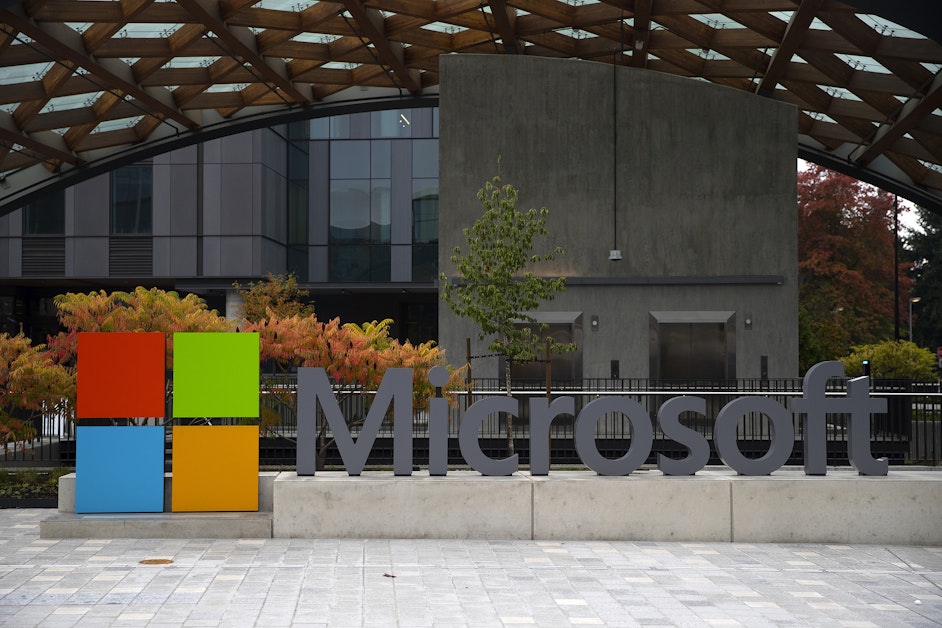Funding Frontier: White House AI Guru Reveals Critical Government Sector Starving for Cash
Business
2025-04-20 03:56:47Content

In a candid assessment of America's technological export landscape, David Sacks, the White House's cryptocurrency and technology export expert, has highlighted a critical need for enhanced resources at the Bureau of Industry and Security (BIS). Sacks emphasized that the agency requires additional funding and support to effectively monitor and enforce export controls on sophisticated U.S.-manufactured semiconductor chips.
The call comes amid growing global tensions and strategic technological competition, particularly with countries like China. By bolstering the BIS's capabilities, the administration aims to tighten restrictions on sensitive chip technologies and prevent potential national security risks associated with uncontrolled semiconductor exports.
Sacks' recommendation underscores the increasing complexity of managing high-tech exports in an era of rapid technological advancement and geopolitical uncertainty. The proposed resource expansion would enable more rigorous screening, tracking, and enforcement of semiconductor technology transfers, protecting U.S. technological leadership and national interests.
Semiconductor Sovereignty: The Critical Battle for Technological Supremacy
In the high-stakes arena of global technological competition, the United States finds itself at a pivotal moment where semiconductor export controls have become a critical battleground of economic and national security strategy. The intricate dance of technological innovation, geopolitical tensions, and strategic resource management is playing out in real-time, with profound implications for international trade and technological leadership.Navigating the Complex Landscape of Technological Containment
The Strategic Imperative of Semiconductor Regulation
The semiconductor industry represents far more than a mere technological sector; it is the foundational infrastructure of modern digital civilization. David Sacks, a key strategist in the White House's technological policy framework, has emerged as a crucial voice highlighting the urgent need for enhanced regulatory capabilities. The Bureau of Industry and Security stands at the forefront of this complex challenge, tasked with implementing sophisticated export control mechanisms that can effectively limit the proliferation of advanced technological capabilities. The intricate nature of semiconductor technology demands a nuanced approach that balances national security concerns with the dynamic requirements of global technological innovation. Sacks' advocacy for increased resources underscores the critical importance of maintaining technological sovereignty in an increasingly interconnected global landscape.Geopolitical Dimensions of Technological Control
The semiconductor export control strategy represents a multifaceted approach to maintaining technological leadership. By implementing stringent regulatory frameworks, the United States seeks to prevent potential adversaries from accessing cutting-edge technological capabilities that could compromise national security interests. This strategic intervention goes beyond simple economic protectionism. It represents a sophisticated geopolitical chess match where technological capabilities are the primary currency of global influence. The ability to control the flow of advanced semiconductor technology becomes a powerful mechanism for maintaining strategic advantage in an era of rapid technological transformation.Resource Allocation and Regulatory Effectiveness
Sacks' call for enhanced resources highlights the significant challenges facing regulatory bodies in managing complex technological export controls. The Bureau of Industry and Security requires sophisticated technological expertise, advanced monitoring capabilities, and substantial financial resources to effectively implement and enforce these critical regulations. The complexity of semiconductor technology demands a dynamic and adaptive regulatory approach. Traditional bureaucratic models are increasingly inadequate in addressing the rapid pace of technological innovation. This necessitates a fundamental reimagining of regulatory frameworks that can respond swiftly and effectively to emerging technological challenges.Economic and National Security Implications
The semiconductor export control strategy represents a delicate balance between protecting national technological advantages and maintaining global technological collaboration. Each regulatory decision carries profound economic and strategic implications, potentially reshaping international technological ecosystems. By carefully managing semiconductor technology exports, the United States can preserve its technological leadership while preventing potential security risks. This approach requires unprecedented levels of coordination between government agencies, technological corporations, and international stakeholders.Future Technological Sovereignty
The ongoing efforts to refine semiconductor export controls represent a critical chapter in the broader narrative of technological sovereignty. As global technological competition intensifies, the ability to strategically manage technological resources will become increasingly paramount. David Sacks and his colleagues are not merely implementing regulations; they are architecting the future of technological leadership. Their work represents a sophisticated approach to maintaining the United States' competitive edge in an increasingly complex global technological landscape.RELATED NEWS
Business

Balcony Cabin Showdown: My Cruise Line Comparison Reveals the Ultimate Winner
2025-04-06 15:04:01
Business

AI Revolution Hits Campus: Kogod Unleashes Enterprise-Level Perplexity Platform for Entire Academic Community
2025-03-19 15:00:00






